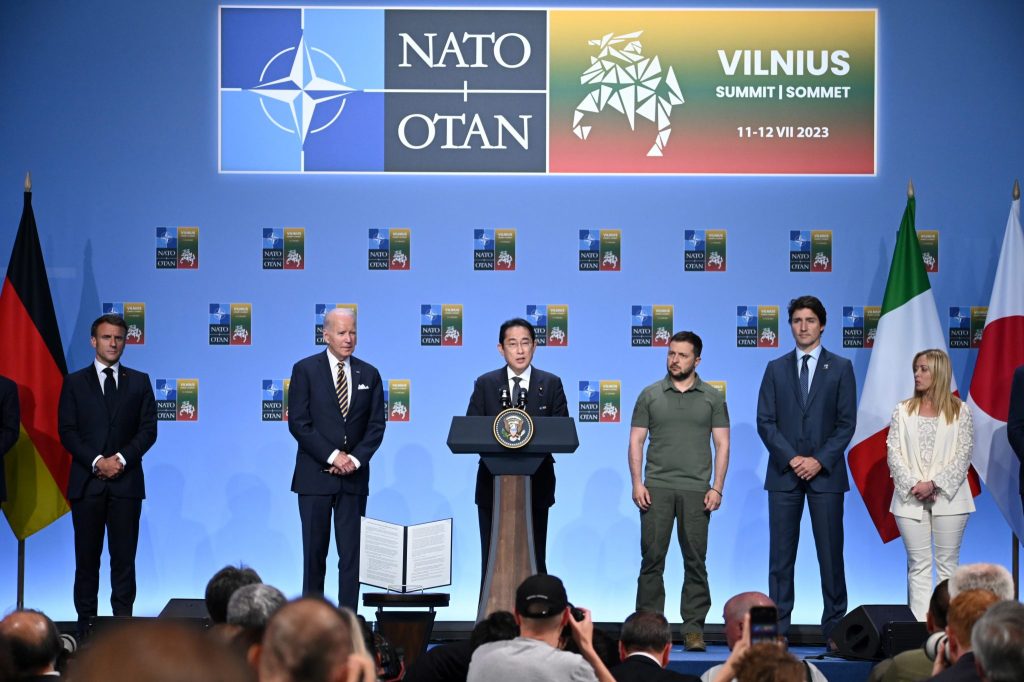
Introduction
In the ever-evolving landscape of international diplomacy, one decision can reshape the balance of power and security on a global scale. Joining NATO, the North Atlantic Treaty Organization is a strategic move that can have far-reaching consequences for a nation’s foreign policy, security, and international standing. In this article, we will explore the significance of joining NATO, the process involved, and the implications it carries. Buckle up as we delve into the world of international diplomacy and discover the game-changer you might not be aware of.
Understanding NATO
What is NATO?
NATO, short for the North Atlantic Treaty Organization, is a political and military alliance formed in 1949. It was established with the primary goal of collective defense, where member countries commit to mutual defense against aggression. NATO’s headquarters are in Brussels, Belgium, and it has become a cornerstone of international security.
The NATO Membership
NATO membership is a club that many countries aspire to join. Currently, there are 30 member countries in NATO, including the United States, Canada, the United Kingdom, and numerous European nations. The alliance has expanded since its inception, welcoming new members over the years.
The Benefits of Joining NATO
Enhanced Security
One of the most significant benefits of joining NATO is enhanced security. Member countries are protected under Article 5 of the NATO treaty, which states that an attack on one member is considered an attack on all members. This collective defense clause acts as a powerful deterrent to potential aggressors.
Political Influence
NATO provides member countries with a platform for political influence on the global stage. It allows nations to collaborate on critical issues, share intelligence, and coordinate their foreign policies. This collective diplomatic effort can be a game-changer in international relations.
Economic Advantages
Joining NATO can also have economic advantages. Member countries often experience increased trade and investment opportunities with fellow NATO nations. The security provided by the alliance can foster economic stability and growth.
The Process of Joining NATO
Eligibility
Not every country can join NATO. To be eligible, a nation must meet certain criteria, including a commitment to democratic values, a functioning market economy, and the ability to contribute to the alliance’s missions effectively.
The Invitation
Joining NATO begins with an invitation. Existing member countries must reach a consensus to extend an invitation to a prospective member. This decision is not taken lightly and involves thorough consideration of the applicant’s qualifications.
The Accession Protocol
Once an invitation is extended and accepted, the aspiring member signs the Accession Protocol, which formalizes their entry into NATO. This step is a crucial part of the process and involves legal and diplomatic procedures.
The Implications of NATO Membership
Defense Commitments
Joining NATO comes with significant defense commitments. Member countries are expected to allocate a certain percentage of their GDP to defense spending and contribute to NATO’s military capabilities.
Geopolitical Alignments
NATO membership can shift a nation’s geopolitical alignments. It often leads to closer ties with Western nations and can have implications for a country’s relationships with non-NATO states.
Security Challenges
While NATO membership enhances security, it also brings security challenges. Member countries must remain vigilant and prepared for potential threats, which can require substantial resources and strategic planning.
Conclusion
In the complex world of international diplomacy, joining NATO represents a significant game-changer for countries seeking security, political influence, and economic advantages. The process of becoming a NATO member is rigorous, but the benefits are substantial. As we’ve explored, enhanced security, political clout, and economic opportunities await those who take the leap into this influential alliance.
Are you ready to reshape your nation’s destiny on the global stage? Consider the potential game-changer that is joining NATO.
FAQs
1. Is NATO only a military alliance?
No, NATO is both a political and military alliance. It involves collaboration on diplomatic and security matters.
2. Are there any financial obligations for NATO member countries?
Yes, member countries are expected to allocate a certain percentage of their GDP to defense spending to support the alliance’s missions.
3. Can any country join NATO?
No, not every country is eligible for NATO membership. There are specific criteria that must be met, including democratic values and a functioning market economy.
4. How does NATO contribute to global security?
NATO contributes to global security by acting as a deterrent to potential aggressors through its collective defense clause and by engaging in peacekeeping and crisis management operations.
5. Does NATO influence a country’s foreign policy?
Yes, NATO membership often leads to closer ties and collaboration on foreign policy among member countries.







